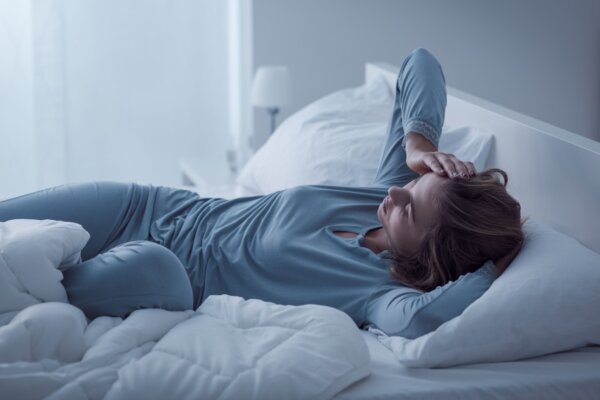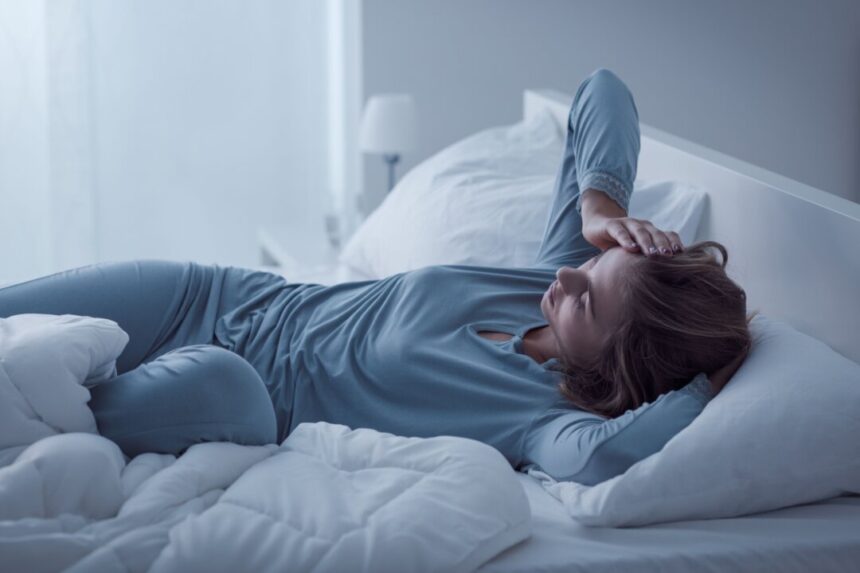
There is a close connection between sleep and blood sugar levels, as an imbalance in the latter can lead to disrupted sleep, nightmares, night sweats, and frequent urination.
If you’re having difficulty sleeping, what you eat for dinner or as a late-night snack could be a contributing factor.
One consistent factor is that the Mediterranean diet is low in refined sugar.
Sleep and blood sugar levels are closely intertwined. The brain works to regulate glucose levels in the blood around the clock, and any significant fluctuations can disrupt sleep patterns. The Mediterranean diet, known for being low in simple sugars and processed foods, is believed to support better sleep quality for this reason.
Exploring the Connection Between Sugar and Sleep
A diet high in refined sugars and carbohydrates can negatively impact sleep in several ways. Consuming high amounts of sugar, especially before bed, can lead to spikes in blood sugar levels. These spikes can result in subsequent crashes, which can disrupt sleep as hormones like insulin and cortisol work to restore balance. This disruption can lead to waking up during the night and disturbed sleep patterns.
How Sugar Influences Sleep
A peer-reviewed study on patients with Type 2 diabetes found a correlation between higher blood sugar levels and poor sleep quality. Another study revealed that 62 percent of adults with prediabetes also experienced poor sleep.
Julie Pace, a registered functional dietitian nutritionist, explained, “The type and timing of your evening meal can significantly affect your blood sugar levels and sleep quality. Consuming sugary and refined carbohydrate-rich foods can cause rapid shifts in blood sugar levels.
“Elevated blood sugar can disrupt sleep by increasing alertness, frequent urination, and feelings of thirst and discomfort. Similarly, a sudden drop in blood sugar can trigger the release of stress hormones like cortisol and adrenaline, making it challenging to relax and fall asleep.”
1. Frequent Urination
Fluctuations in blood sugar levels can influence urination frequency. High blood sugar levels can lead to increased urine production and more frequent trips to the bathroom. Conversely, low blood sugar levels can reduce urine production, resulting in less frequent urination.
“When blood sugar is high, the kidneys work harder to eliminate excess sugar, leading to increased urination,” Ms. Pace noted.
2. Night Sweats
Blood sugar levels can impact body temperature regulation. High blood sugar levels can cause dehydration due to increased urine output, affecting the body’s ability to regulate temperature.
On the other hand, low blood sugar levels can trigger shivering and heat generation to maintain core temperature. To counteract low blood sugar, the body releases adrenaline, which can narrow blood vessels and activate sweat glands, leading to clammy and sweaty skin at night. Blood sugar fluctuations can also affect blood circulation and flow, further influencing body temperature.
3. Vivid Dreams
While more research is needed, there is evidence linking blood sugar levels to vivid dreaming. Drops in blood sugar during sleep have been associated with nightmares and sleep disturbances. A case report in 2019 highlighted abnormal sleep behavior in a Type 2 diabetes patient due to hypoglycemia, which improved with insulin adjustments. Additionally, research suggests a link between poor glycemic control and bad dreams in individuals with Type 2 diabetes.
Managing Blood Sugar for Better Sleep
If blood sugar fluctuations disrupt your sleep, a balanced snack before bedtime can help stabilize levels. Opt for snacks low in carbohydrates and high in protein to promote restful sleep. High carbohydrate consumption has been associated with lower sleep quality.
“For a bedtime snack that helps regulate blood sugar, consider options like apple slices with peanut butter, hummus with raw veggies, or avocado slices with hemp seeds on whole wheat toast,” Ms. Pace suggested.
If you experience specific sleep disruptions like waking up at certain times, frequent urination, temperature changes, or vivid dreams, your blood sugar levels may be a contributing factor. Maintaining a diet low in refined sugars can help prevent blood sugar spikes and drops during sleep. Consult your healthcare provider if you notice frequent blood sugar fluctuations, as they can help you develop a plan to manage your levels effectively.





